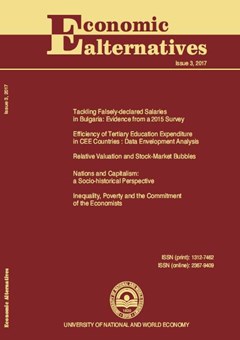It Doesn’t Matter How We Assess the Competencies in Accounting Education?
Author: Michael Musov
Abstract
Currently, the accounting profession has lost its privilege of self-regulation. Accounting education is also plagued with many problems. The issue how to assess professional competencies achieved by the end of the accounting undergraduate education – using a paper-based or a computer-based exam – cannot solve any of these problems. However, it remains an important one, because it draws attention to the roots of the problems – the crisis in the accounting profession’s values. While the value proposition of the other learned professions (i.e. how a profession provides benefits to society at large) is based on the commitments of their members to serve the broad public interest, in accounting we have two conceptually different value propositions. The Pathways Commission (2012) defines it broadly – in terms of the role of accounting in the wider society, Lawson et al. (2014; 2015), however, propose a weaker value proposition defined in terms of the role of accounting in adding value to the individual organizations. The choice among these statements is critical for the future of accounting education and the profession. The paper suggests that what values one teaches is equally important to considering how we assess the level of competencies students have achieved. In seeking to expound this thesis, the paper explores the need for a broad societal perspective on the accounting’s value proposition as well as the implications this proposition has for reforming accounting higher education. A shift in the focus of ethics courses and a shift in the teaching strategies applied offer the best hope for fulfilling the advanced promise of the accounting profession and its education. However, this entirely qualitative study suggests that in testing students’ ethical reasoning capacity – the core driver of the commitments to the profession’s ideal – computer-based exams appear to be as (ir)relevant as the paper-based exams.

